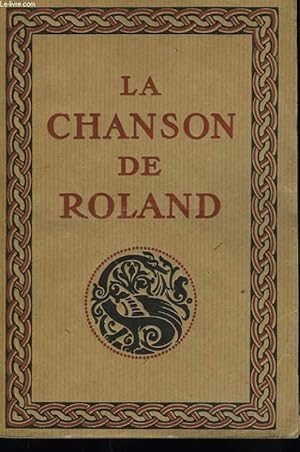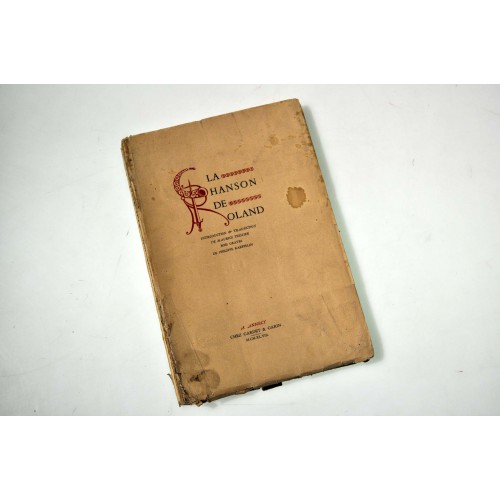

On the contrary, the way the term is used, referring simply to a Muslim land, indicates that the author was writing before the Crusades. The occurrence of d'oltre mer cannot reliably be interpreted as resulting from the Crusades. The name was commonly used by contemporary chroniclers to refer to the Latin Levant. Oltre mer, modern French Outremer (literally, "oversea, beyond sea, other side of the sea") is a native French term from the classical Latin roots ultra = "beyond" and mare = "sea". In the text, the term d'oltre mer (or l'oltremarin) occurs three times in reference to named Muslims who came from oltre mer to fight in Spain and France. Others favor a later dating based on their interpretations of brief references made to events of the First Crusade.

Some favor the earlier dating, which allows that the narrative was inspired by the Castilian campaigns of the 1030s and that the poem was established long enough to be a major influence in the First Crusade, (1096–1099). Scholars estimate that the poem was written between approximately 10 -possibly by a poet named Turold ( Turoldus in the manuscript itself)- and that most of the alterations were completed by about 1098. And there are eight additional manuscripts and three fragments of other poems on the subject of Roland.

It dates between 11 and was written in Anglo-Norman. There is a single extant manuscript of the Song of Roland in Old French, held at the Bodleian Library at Oxford. The final text contains about 4,000 lines of poetry.Īlthough set in the Carolingian era, The Song of Roland was written much later. The date of composition is put in the period between 1040 AD and 1115 AD an early version began around 1040 AD with additions and alterations made up until about 1115 AD. The epic poem written in Old French is the first and one of the most outstanding examples of the chanson de geste, a literary form that flourished between the 11th and 16th centuries in Medieval Europe and celebrated legendary deeds. It exists in various manuscript versions, which testify to its enormous and enduring popularity in Medieval and Renaissance literature from the 12th to 16th centuries. It is the oldest surviving major work of French literature. The Song of Roland ( French: La Chanson de Roland) is an 11th-century chanson de geste based on the Frankish military leader Roland at the Battle of Roncevaux Pass in AD 778, during the reign of the Carolingian king Charlemagne. The eight phases of The Song of Roland in one picture illustration by Simon Marmion from an illuminated manuscript of the Grandes Chroniques de France (15th century), currently preserved in the Hermitage Museum, St.


 0 kommentar(er)
0 kommentar(er)
